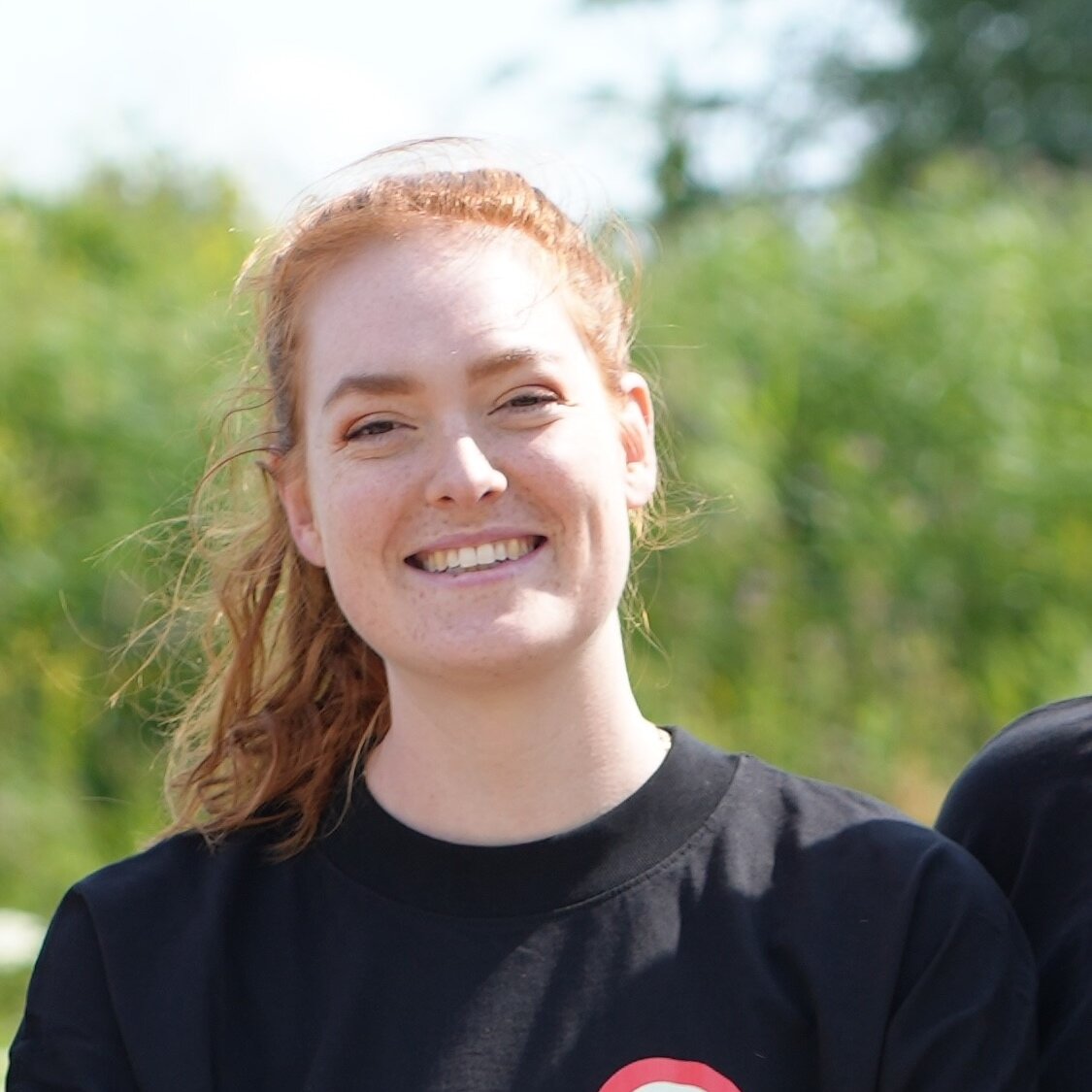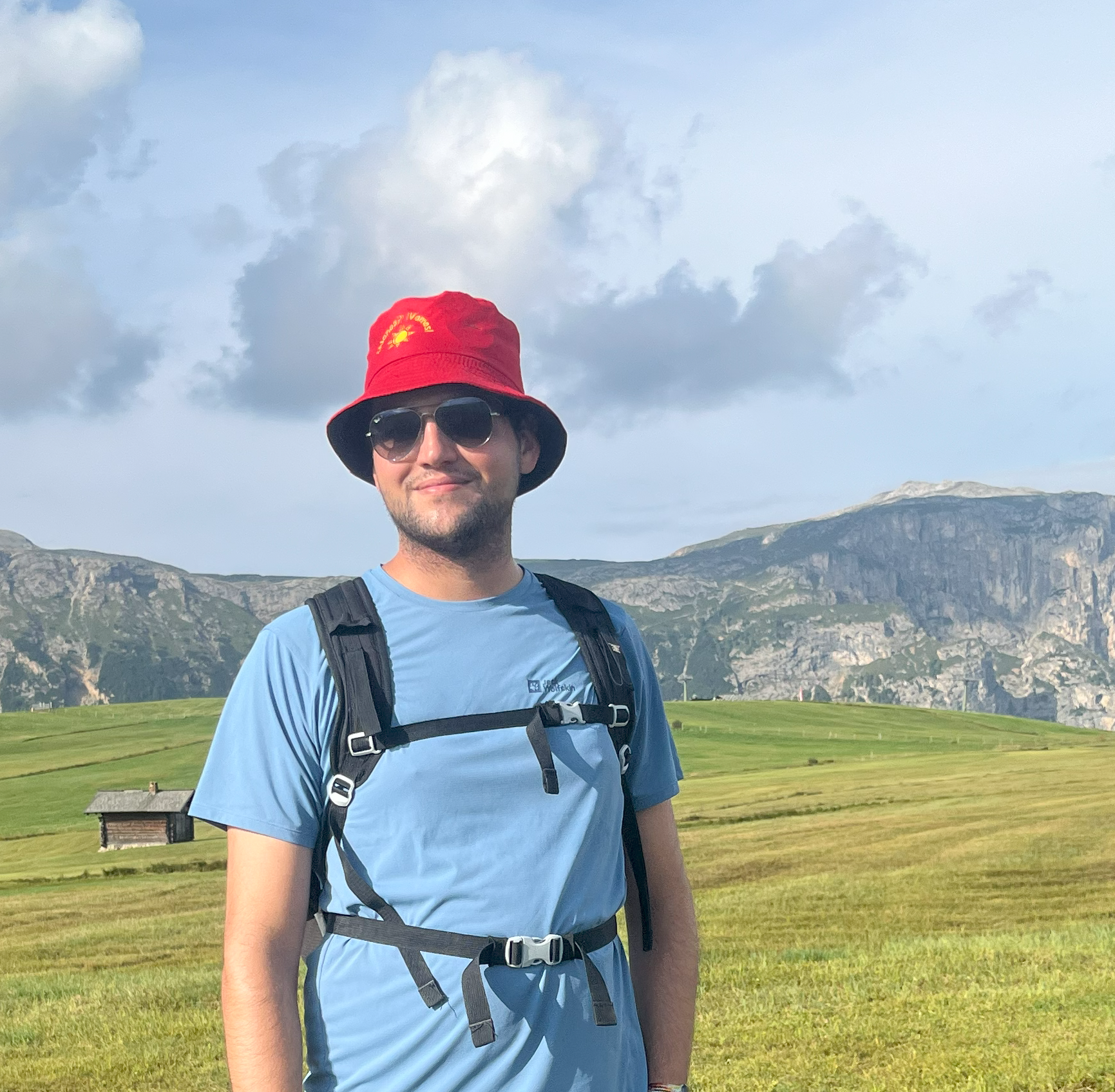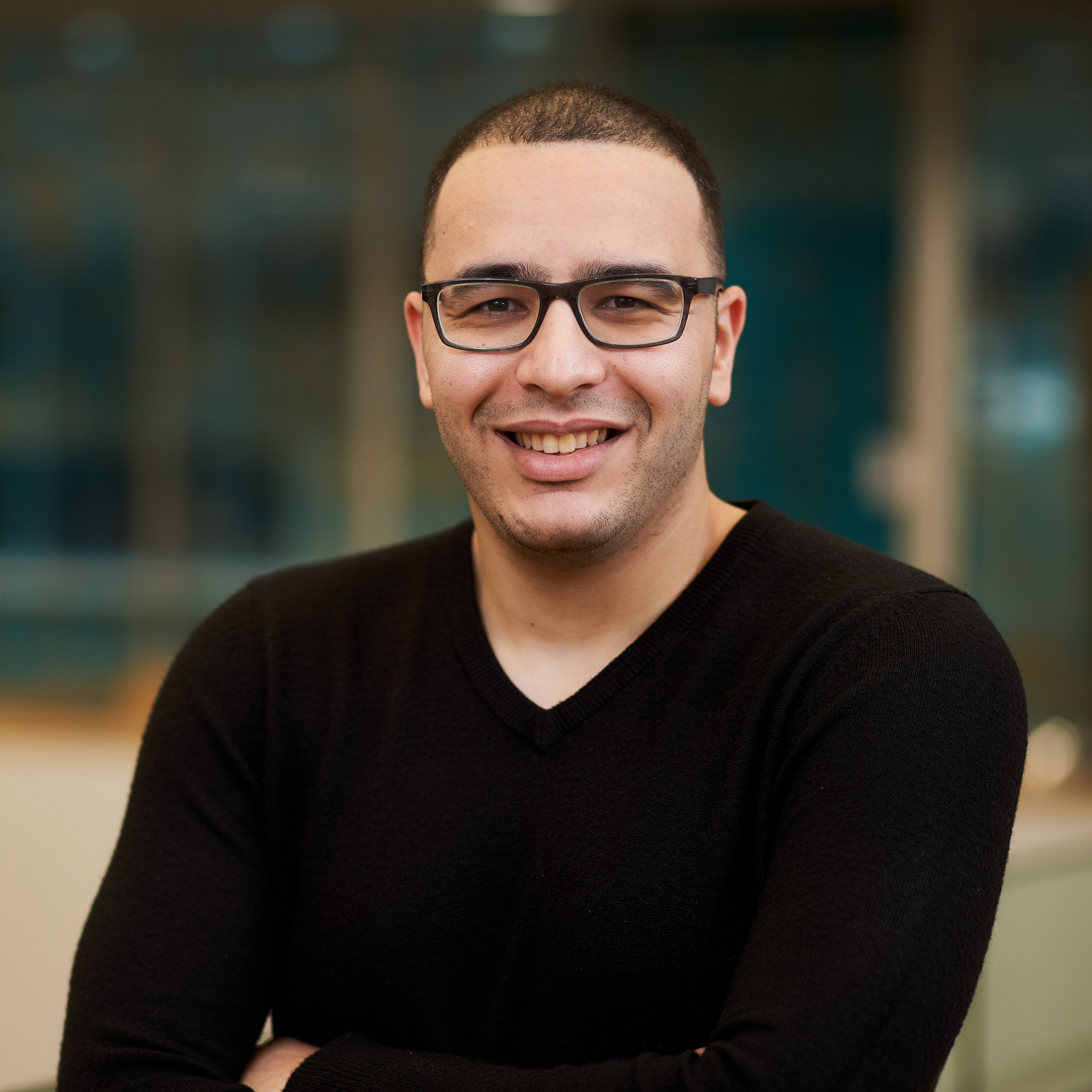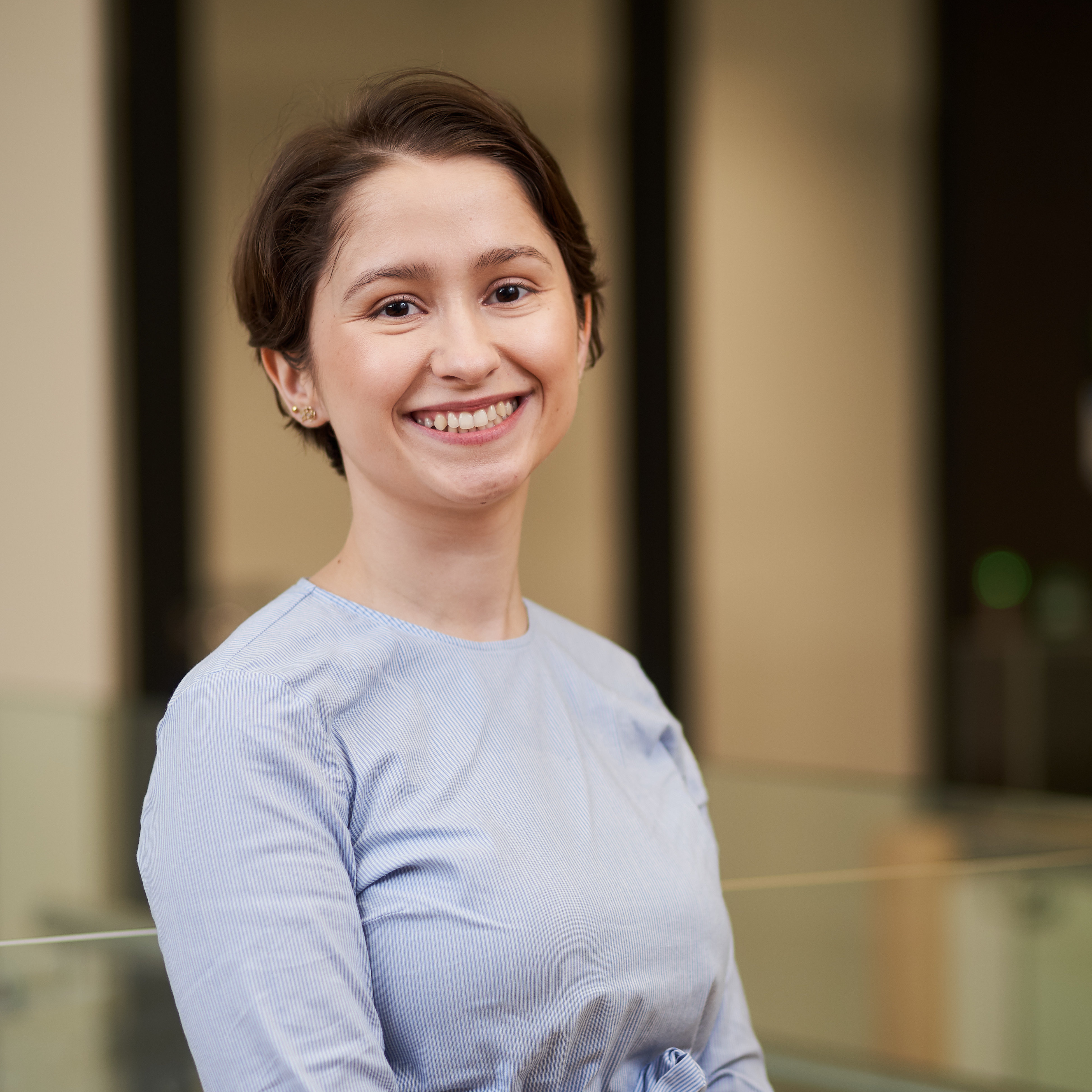Alumni

Name: Sara Okhuijsen
Alumnus: Master Nanobiology
I'm so happy I chose the Nanobiology programme! It's been a great fit for me, giving me an interdisciplinary background that allows me to connect with people from all kinds of specialisations, as well as a solid scientific foundation.
Sara Okhuijsen
I was really excited to choose the MSc Nanobiology programme at Delft University of Technology & Erasmus Medical Center. I had already done a Bachelor's degree in Nanobiology because I just couldn't get enough of learning about the building blocks of life at the nanoscale!
I absolutely loved the programme's diverse curriculum, which spanned everything from Soft Matter Physics to the Origins of Life! I was really drawn to DNA and RNA sequencing technology, and ended up doing some fascinating research into Genomic Privacy. I was looking at how cryptographic techniques and privacy-enhancing technologies (PETs) can keep genomic data safe while still allowing us to make valuable insights. It's a field with so much potential, especially with the seemingly magical zero-knowledge proofs!
I'm so happy to say that my expectations for the programme were exceeded! It really encouraged me to be proactive and take ownership of my learning, which I think is a great quality to have. While I know the flexibility might seem a bit overwhelming at first, I absolutely loved having the freedom to explore my interests.
I'm so happy I chose the Nanobiology programme! It's been a great fit for me, giving me an interdisciplinary background that allows me to connect with people from all kinds of specialisations, as well as a solid scientific foundation.
At the moment, I’m co-leading an exciting new interdisciplinary startup, OASYS NOW, which is all about cybersecurity and privacy for healthcare solutions. I'm so lucky to be running a startup with an amazing interdisciplinary team of computer scientists, lawyers, and clinical professionals. We're all about making sure that everyone can access a personalised healthcare experience by improving the data infrastructure in a way that's respectful of people's privacy. I'm really interested in genomic privacy and how we can use cryptographic techniques or privacy-enhancing technologies to make the most of genomic data. It's such an amazing area to be working in!
I am researching genomic privacy and how we can use cryptographic techniques or privacy-enhancing technologies to process genomic data. My goal is to develop a scalable solution that allows us to extract insights from this valuable data without compromising anyone's privacy. I am confident that this approach will revolutionize the way we handle genomic data.
In the future, I will make healthcare and genomic data more accessible for research by making security technology easily available. By prioritising privacy and accessibility, we can and will unlock a future where healthcare is truly personalised and data-driven, without compromising individual privacy.
If you are curious, check out our website www.oasysnow.com or follow us on LinkedIn.

Name: Francesco Guido Vinzoni
Alumnus: Master Nanobiology
Studying at both TU Delft and Erasmus MC, I found myself working with researchers and professors who are at the forefront of their respective fields, using the knowledge they have acquired over time and sharing their experience with us students in lectures, seminars and mentoring sessions.
Francesco Guido Vinzoni
My name is Francesco and I'm a 2022 Nanobiology Master student.
After finishing my Bachelor, I chose the Nanobiology Master to continue my education at the forefront of modern applications of mathematics and physics to biology.
Studying at both TU Delft and Erasmus MC, I found myself working with researchers and professors who are at the forefront of their respective fields, using the knowledge they have acquired over time and sharing their experience with us students in lectures, seminars and mentoring sessions.
Having completed my Bachelor's degree in Nanobiology in 2022, I expected the Master's programme to further develop relevant, modern knowledge and techniques applied to research, but I did not expect how interconnected the fields really were: while studying the physics and functioning of transmission electron microscopes, I was fascinated by their application to biological samples, and the innovations made specifically by biologists in image registration using quantum dots. During the two years I spent on this programme, I realised how much mathematics, biology, physics and programming really do interact and are necessary to extend the current research landscape.
You don't just get a Master's degree, and of course it wasn't always easy to work for all the courses. But even in the subjects I'm weaker in, namely analytical mechanics, I found friends who were able to help me understand the subject, and I learned to approach the subject from my own point of view: instead of understanding the theoretical equations I was struggling with, I applied them to a simple model I could program on my PC and visualise with graphs. Studying nanobiology has taught me how to bridge different topics and tools to better understand the challenges ahead.
Now that I've just finished my thesis, I'm applying for internships and PhD positions in developmental/regenerative biology
I am looking to bring my expertise to laboratories that need more than just a biologist and could benefit from someone who can program independent pipelines, adapt to most instruments used, a biologist who understands physics and a physicist who understands biology.

Name: Ilias Zarguit
Alumnus: Master Nanobiology
Alongside the core set of mandatory in-depth courses, with the free choice of electives there is quite some scope to specialise as the nanobiologist you want to become.
Ilias Zarguit
MSc Nanobiology exposed me to even more in-depth knowledge than the BSc. Alongside the core set of mandatory in-depth courses, with the free choice of electives there is quite some scope to specialise as the nanobiologist you want to become. And as well as the science, there’s also an emphasis upon developing soft skills such as scientific writing and presenting. All the knowledge and skills I acquired have been very useful for me in my career.
After graduating, I worked as a Technical Service Engineer at LUMICKS, a scale-up that develops novel, cutting-edge high-tech equipment with the dream of unlocking single-molecule and single-cell experiments for the world. This role required a deep, thorough understanding of the optics and electronics of complex machines as well as a fundamental grasp of the biological questions and assays customers were working on. My Nanobiology degree gave me the educational background needed not only to feel comfortable in both fields, but also be able to quickly understand, learn and utilise any new information and developments from the most fundamental basis. Moreover, since there was quite a lot of communication with customers, the soft skills acquired during this intense programme were directly transferable to the job. They made it easy for me to adapt to the customer, who might be either a biologist or a physicist, and to speak their language.
I have recently returned to academia as a PhD student at Leiden University. The research-heavy nature of the programme, in the form of the Master’s end project and work placement, has given me a nice starting boost in both the wet lab and the dry lab aspects of this work.

Name: Teodora Trandafir
Alumnus: Master Nanobiology
This program combined my favourite subjects – mathematics, physics and informatics – with biology, with the aim of training pioneering scientists able to conduct breakthrough research that impacts our lives and our understanding of life.
Teodora Trandafir
My story with Nanobiology began by chance, when I stumbled upon the Bionanoscience laboratories whilst visiting Delft University of Technology as a tourist from Romania. After intensive Dutch language courses (no longer required for new international students), I joined the interdisciplinary BSc programme in Nanobiology. This combined my favourite subjects – mathematics, physics and informatics – with biology, with the aim of training pioneering scientists able to conduct breakthrough research that impacts our lives and our understanding of life. While the BSc curriculum was quite rigid, with mandatory courses to impart the knowledge required to bridge the gap between the nanoscale world of biological organisms and the theoretical concepts of physics, the MSc allowed us to personalise the major part of the programme. I focused on theoretical studies of soft condensed matter physics, mathematical modelling of biological systems and state-of-the-art nano/microscopy techniques. Since clinical research fits in with my future plans, I did my final project at the Erasmus Medical Centre. There I developed an AI tool to quantify the invasiveness of lung cancer based upon digital histology images of biopsy resections. Now, after five years of ups and downs and with a Master’s degree to my name, I’m very happy about my Nanobiology trajectory and really looking forward to my PhD project. That aims to integrate multiple “-omics” strategies and AI for personalised diagnosis of lung cancer.
Read more about Students' experiences